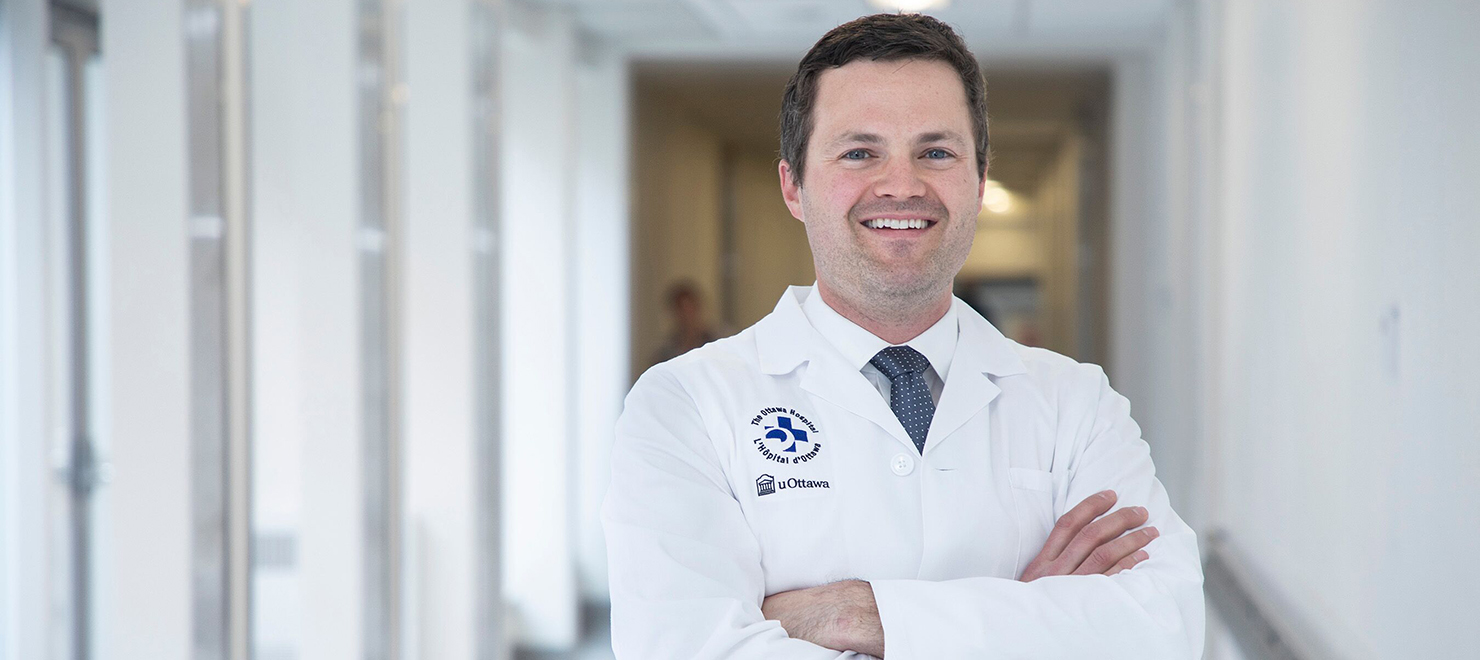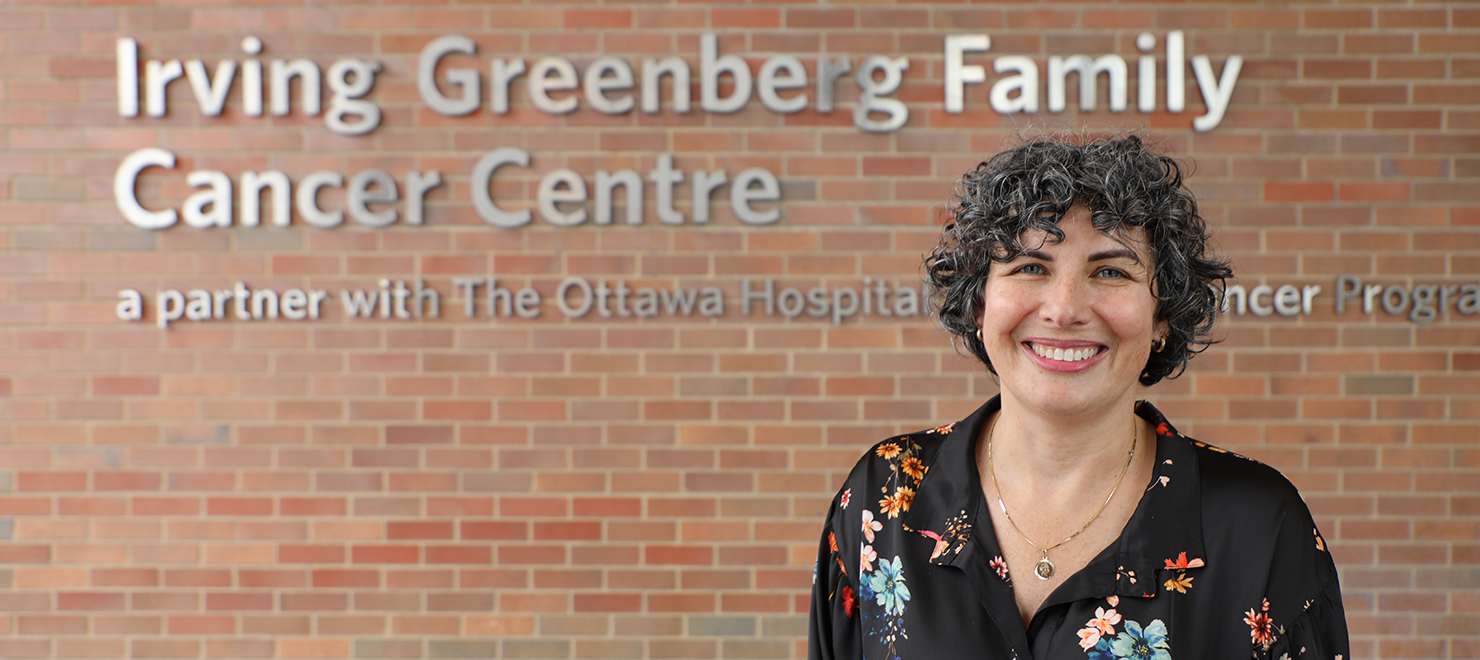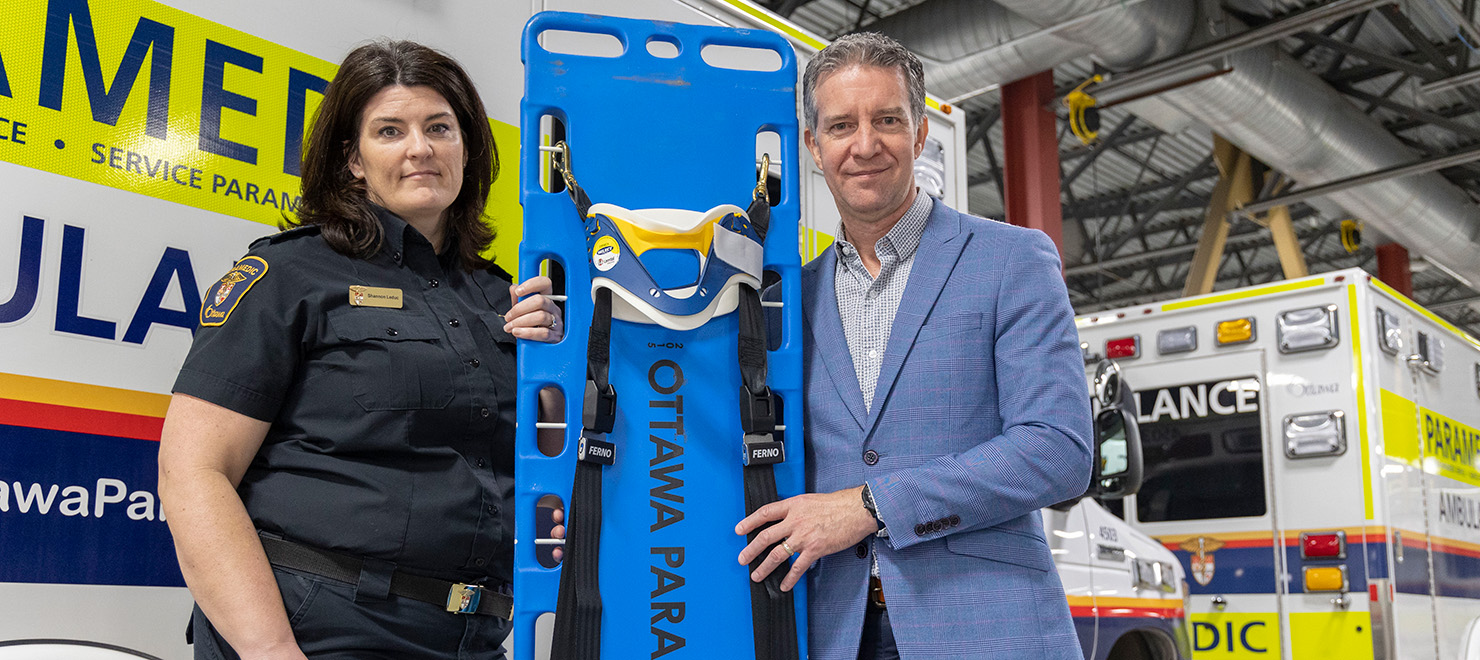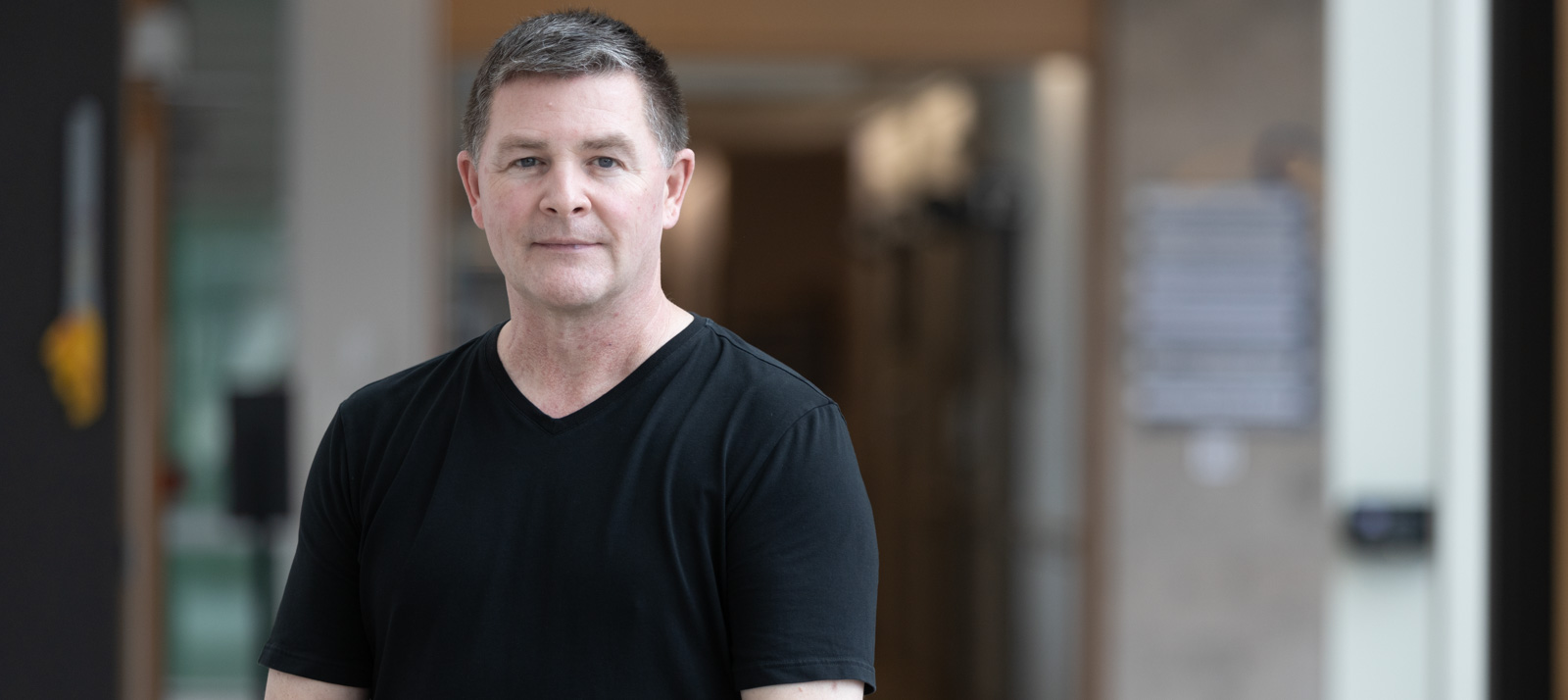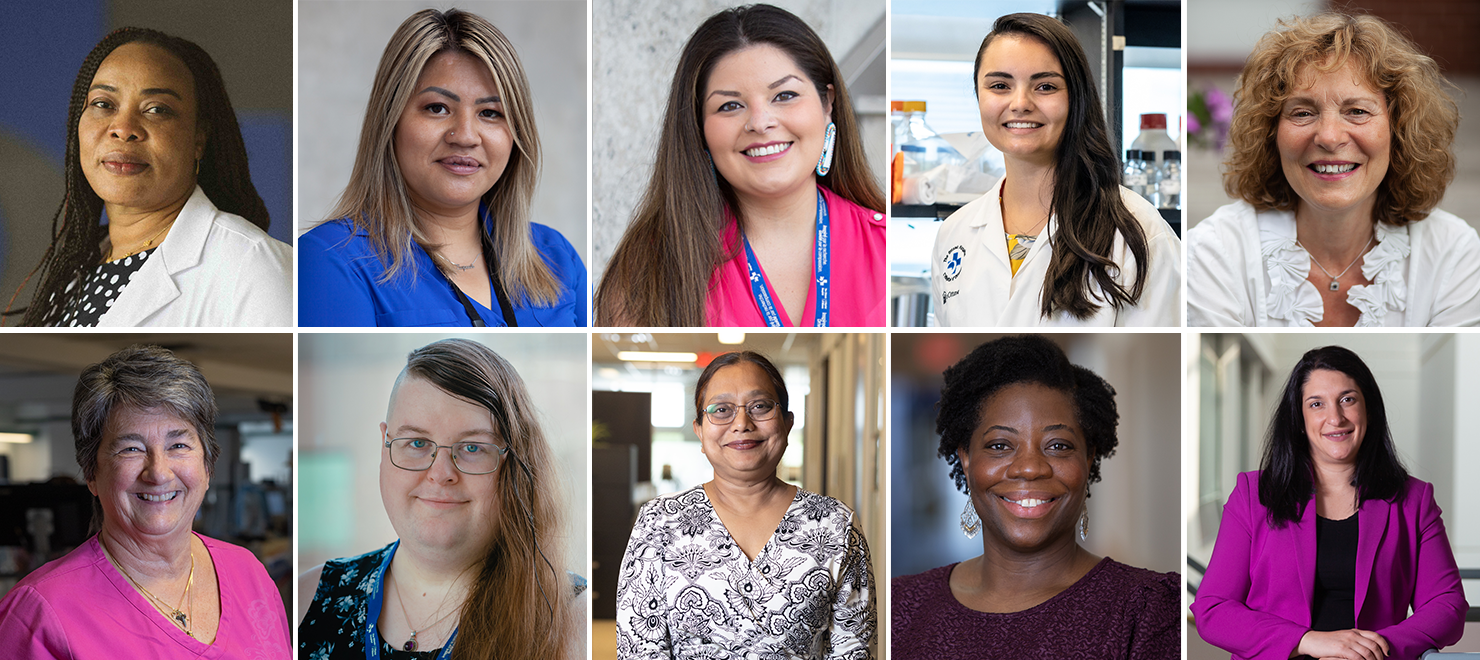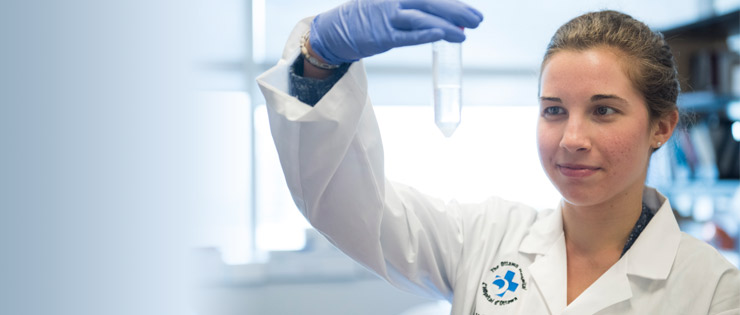
The Ottawa Hospital has become a world leader in stem cell research.
Bringing stem cell research to patients – that’s the common goal that has united research specialists from a wide range of disciplines under The Ottawa Hospital’s Sprott Centre for Stem Cell Research.
Over the past 10 years, the centre has become the hub of the world-renowned group of researchers who make up the hospital’s Regenerative Medicine Program.
“We are entering a new era of medicine,” said Dr. Michael Rudnicki, Director and senior scientist at the Sprott Centre and professor at the University of Ottawa. “More and more we are going to see regenerative medicine using cutting-edge disruptive technologies to treat many devastating diseases that have no current therapy. With the expertise we have built in Ottawa, we are leading the way with significant discoveries and their translation to the clinic.”
The Sprott Centre supports the work of stem cell researchers with facilities that can analyze cells’ proteins and genetic profile. It also has clean rooms used to manufacture cells for early stage clinical trials.
Discoveries from the Sprott Centre have led to several first-in-human clinical trials and the creation of several biotechnology companies. Some of these discoveries include:
- Dr. Michael Rudnicki discovered stem cells in adult muscle. His work has opened the door to developing drugs to help repair muscles in patients with muscular dystrophy.
- Dr.Marjorie Brand showed that blood vessel stem cells grown in the lab can be encouraged to repair blood vessels more quickly after transplantation in a patient if they are treated with drugs that turn genes on and off. She is exploring which molecular pathways to target to further optimize this process.
- Dr. Jeffrey Dilworth identified several key proteins needed to control the conversion of muscle stem cells into mature muscle. He is looking at how this could be used to treat different muscle-wasting diseases.
- Dr. Lynn Megeney demonstrated that scissor-like proteins normally involved in cell death play a key role in converting muscle stem cells into mature muscle. He is exploring how drugs that block the scissor-like function of these proteins can be used to improve muscle regeneration.
- Dr. William Stanford re-programmed connective tissue cells from patients with Progeria, a genetic condition that causes rapid premature aging, into a kind of stem cell that gives rise to any type of cell in the body. His work helps us better understand how our cells change during aging, and how they might be rejuvenated.
The Ottawa Hospital’s leadership in stem cell research promises even more discoveries in the decades to come.

Support patient care and research at
The Ottawa Hospital
You might also like…
Do you have a surgery coming up? Here are five “prehab” tips to help you recover faster
You’ve probably heard about rehabilitation, but what about “prehabilitation”? Prehab is all about getting your body and mind in top shape before surgery so you can enjoy a smoother, quicker recovery. Discover five essential prehab strategies from researcher Dr. Daniel McIsaac.
By thinking differently, this research team is improving the lives of people with cancer
Taking a different approach to clinical trials, the REthinking Clinical Trials (REaCT) program aims to answer some of the most important and practical questions that affect both patients with cancer and our health-care system. Find out what sets REaCT apart and makes the program so special to participants like Beth.
Does this backboard look comfortable to you?
Imagine this: You’re flat on your back, strapped tight to a rigid backboard, unable to move at all. Fortunately, this is no longer the reality for most low-risk trauma patients when they’re brought to hospital in our province. Find out how researchers at The Ottawa Hospital teamed up with paramedics across Ontario to make the journey a lot more comfortable.
Ever have a tough time making a medical decision? These tools can help you
When faced with a medical condition, there may not be one clear path forward — but we have something to help you with that. The Ottawa Hospital is home to the largest collection of decision aids in the world, covering everything from various cancers to depression to allergies.
After a traumatic brain injury, this physician is on a mission to improve inclusion of docs with disabilities
Motivated by his own experience, Dr. Michael Quon has helped create a new accessibility and accommodation policy for physicians with disabilities in The Ottawa Hospital’s Department of Medicine.
A special video message for International Women’s Day
Every year on March 8, we recognize International Women’s Day to celebrate how far we have come with equal rights and opportunities for women, and to acknowledge how far we still have left to go. This video is a short-but-sweet reminder that the women who work for our organization are driven, caring, innovative and powerful.


 To reset, hold the Ctrl key, then press 0.
To reset, hold the Ctrl key, then press 0.
